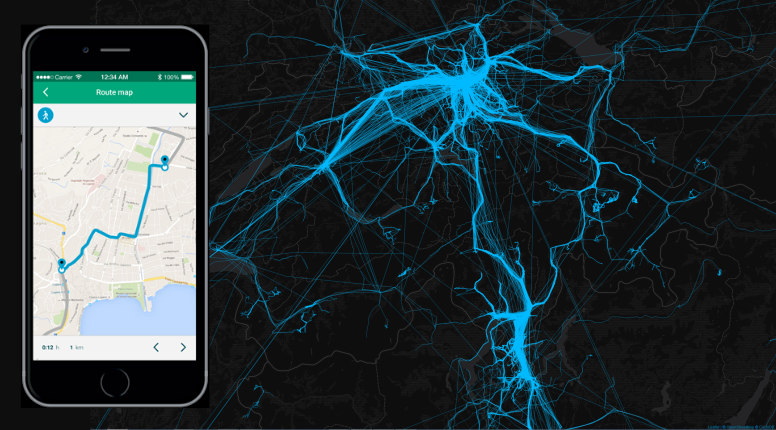GoEco! - Nudging People to Travel Sustainably
«How can I travel more sustainably?» - The GoEco! project of SUPSI and ETH Zurich tries to answer this, a question that many of us already ask ourselves. GoEco! uses a smartphone app to automatically track and assess travel choices, utilizing gamification elements to improve mobility behavior.
GoEco! is a project funded by the external page NRP 71 “Managing Energy Consumption” (the project proposal originated from the external page SCCER Mobility) and assesses whether mobility behavior can be positively influenced using information and communication technologies (ICT). In particular, the project will enable the researchers to identify the main opportunities for change, and to gather bottom-up proposals regarding transport planning, with the goal of achieving a broader and deeper change in mobility for everyone.
The first phase of GoEco! has been running for the last two months, during which approximately 450 study participants from the cantons of Zurich and Ticino gathered mobility baseline data. This data will be used to assess the future performance of the app users (i.e. changes in travel choices), calculating feasible goals for improved mobility behavior. As everyone’s travel needs are different, an assessment must be made for every study participant on an individual level. In the next phase, scheduled for Fall 2016, the full GoEco! application will be made available, including extensive feedback on one’s own mobility behavior, and gamification elements to support a transition to a more sustainable mobility lifestyle. A year from now, the final project phase will enable the researchers to study the long-term effects of the incentive.

The ESC member involved in this project is Prof. Dr. Martin Raubal, Professor of Geoinformation Engineering at the Institute of Cartography and Geoinformation.
The Chair of Geoinformation Engineering has its research foci in the areas of mobility and energy. In the area of mobility, the group research lies at the intersection of mobile geographic information systems, geospatial information technologies, and mobile decision-making. In the area of energy, the focus is on the development of spatio-temporal algorithms to determine the technical and economic potential of renewable energy sources, and optimal locations for energy facilities and power lines.